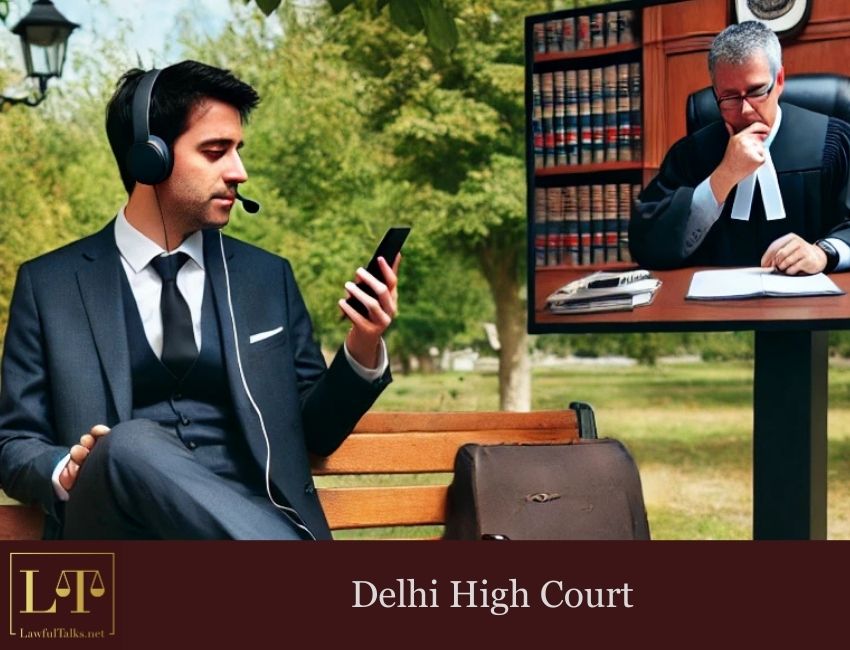Allahabad HC Sets Aside Afzal Ansari's Conviction, Allows Him to Continue as MP

An unusual courtroom scenario unfolded when a lawyer attempted to represent his clients via videoconference while standing in a park, holding a mobile phone. The failure of advocates to uphold professional standards, despite continuous reminders, drew the ire of Justice Girish Kathpalia, of the Delhi High Court presiding over the case of Shobha Verma & Anr. v. Ashok Kapoor (RFA 80/2025).

During dictation of the order, the lawyer in question turned off his video, leading the judge to refuse acknowledgment of his presence. The court observed that such instances were becoming increasingly frequent and that clear directives had been issued regarding the conduct expected in virtual hearings.
The case involved a financial dispute where the appellants contested a judgment that ordered repayment of Rs. 5,00,000, which they had received via cheque from the respondent. The appellants claimed that the cheque was a reimbursement for an earlier cash loan extended to the respondent. However, the court found no substantial evidence proving such a loan existed, casting doubt on the credibility of their defence.
The trial court had already ruled against them based on a lack of documentary proof, and the appellate court found no reason to overturn that decision. Addressing the decorum of virtual appearances, the judge remarked, “Though such conduct could justify dismissing the appeal, it would ultimately punish the litigant, who bears no responsibility for the lawyer’s actions. Therefore, I have independently reviewed the case records.” He further emphasized that courts should not be placed in a position where virtual hearings compromise judicial proceedings due to lack of adherence to prescribed norms.
Additionally, the court directed, “The Registry shall extract paragraphs 3 and 4 of this order and circulate them to the Delhi High Court Bar Association and all district bar associations to raise awareness regarding professional conduct in hybrid courts.”
Further it was emphasised by the court that while hybrid hearings allow lawyers greater flexibility, they must not dilute the formalities required during legal proceedings.The court also highlighted that instances of poor connectivity and inattentive participation hinder the smooth functioning of virtual hearings.
Concluding the judgment, the court reiterated the significance of professional responsibility, emphasizing that the convenience of virtual hearings should not come at the cost of court decorum. The absence of a stay on the original ruling further placed the onus on the appellants’ counsel to establish the validity of their appeal when the matter is heard again on July 22, 2025. The ruling also served as a warning to legal professionals, reminding them that their conduct in virtual spaces would be subject to the same scrutiny as in physical courtrooms.
Title: Shobha Verma and Anr v. Ashok Kapoor





























































































































































































































































































































































































































































































































































































































































































































































